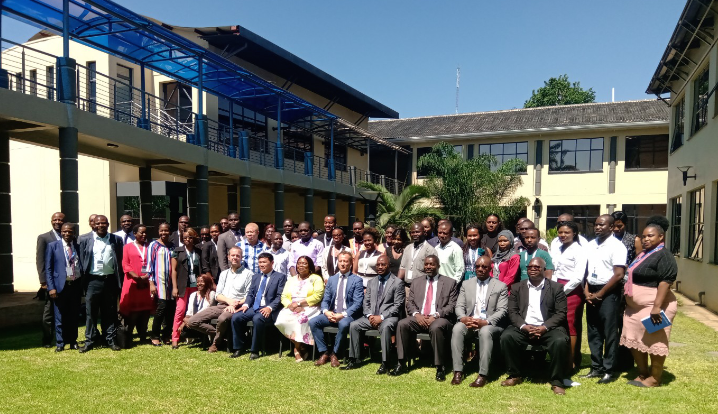By Byron Mutingwende
Geographical indications are important for socio-economic development and wealth creation, experts in intellectual property issues have said.
Mr Fernando dos Santos, the Director-General of the African Regional Intellectual Property Organisation (ARIPO) made the remarks at the two-day Sub-regional Intellectual Property (IP) Conference on Geographical Indications in Africa, organised by the World Intellectual Property Organisation (WIPO) and ARIPO in collaboration with Africa University that kicked off in Harare today.
These IP conferences have been taking place since 2014 at the end of the residential phase of the Masters in Intellectual Property (MIP) Program. The objective of the IP conferences has been to provide a platform for MIP students and participants from ARIPO Member States to be exposed to emerging issues in IP and existing opportunities in the strategic use of the IP system.
The theme for this year is “Geographical Indications in Africa: Territorial Development, Economic Integration and International Trade.”
Mr Fernando said Africa is replete with traditional agricultural and craft products whose quality and origin can be can be usefully promoted through Geographical Indications and other collective quality schemes, thereby contributing to the development of local and rural communities.
In a bid to support such efforts, in 2017, the African Union adopted the Continental Strategy for the Development of Geographical Indications in Africa and ARIPO’s key role in the implementation of this continental strategy cannot be over-emphasised.
“This sub-regional IP Conference for these two days is meant to be part of the continental and regional process. It will also enhance awareness on the need to be empowered with national, regional and international instruments to protect and promote origin products, but also to consider the development and effective implementation of national and regional projects and policies on Geographical Indications.
“The conference will furthermore provide a platform for participants to understand the importance of the strategic use of Geographic Indications for socio-economic development and wealth creation in Africa, “ Mr dos Santos said.
Martha Chikowore, a Counsellor for WIPO emphasised that geographical indication (GI) is a sign used on products that have a specific geographical origin and possess qualities or a reputation that are due to that origin.
“In order to function as a GI, a sign must identify a product as originating in a given place. In addition, the qualities, characteristics or reputation of the product should be essentially due to the place of origin. Since the qualities depend on the geographical place of production, there is a clear link between the product and its original place of production. In our countries we have lots of products that we could identify as GIs. Geographical indications and appellations of origin are a common feature of everyday life. They provide a way for business to leverage the value of their geographically unique products, and also inform and attract consumers,” Mrs. Chikowore said
On October 31, 2008, the World Intellectual Property Organisation marked the 50th Anniversary of the adoption of the Lisbon Agreement.] Speaking at the opening of the July 2-4, 2019, Worldwide Symposium on Geographical Indications – organised in cooperation with the Government of Portugal. The Director General of WIPO said: “The reputations of specific products with origins in particular geographical localities are particularly important in a globalised world,” noting: “When people travel, they don’t seek the same things as they find at home. They seek diversity. So there is an economic as well as a social value in diversity. Geographical indications are a very powerful instrument for capturing that value associated with diversity.”
She said protection of geographical indications at national and regional levels is characterised by the existence of a variety of different legal concepts. These differences have a direct bearing on important questions such as conditions for protection, entitlement to use and scope of protection.
“It is therefore important for countries to be part of the Geneva Act of the Lisbon Agreement which was concluded in response to the need for an international system that would facilitate the protection of a special category of such geographical indications, i.e. “appellations of origin”. The Geneva Act of the Lisbon Agreement is designed to help ensure that holders of appellations of origin and geographical indications can file a single application and pay one set of fees to seek protection in multiple jurisdictions.
“Who can join: Member States which are party to the Paris Convention or which are members of the World Intellectual Property Organisation (WIPO) and whose legislation complies with the relevant provisions of the Paris Convention for the Protection of Industrial Property can accede to the Geneva Act. In addition, the Act foresees the possibility of accession by international intergovernmental organisations with competence to protect appellations of origin or geographical indications, for example the African Intellectual Property Organisation (OAPI).”
